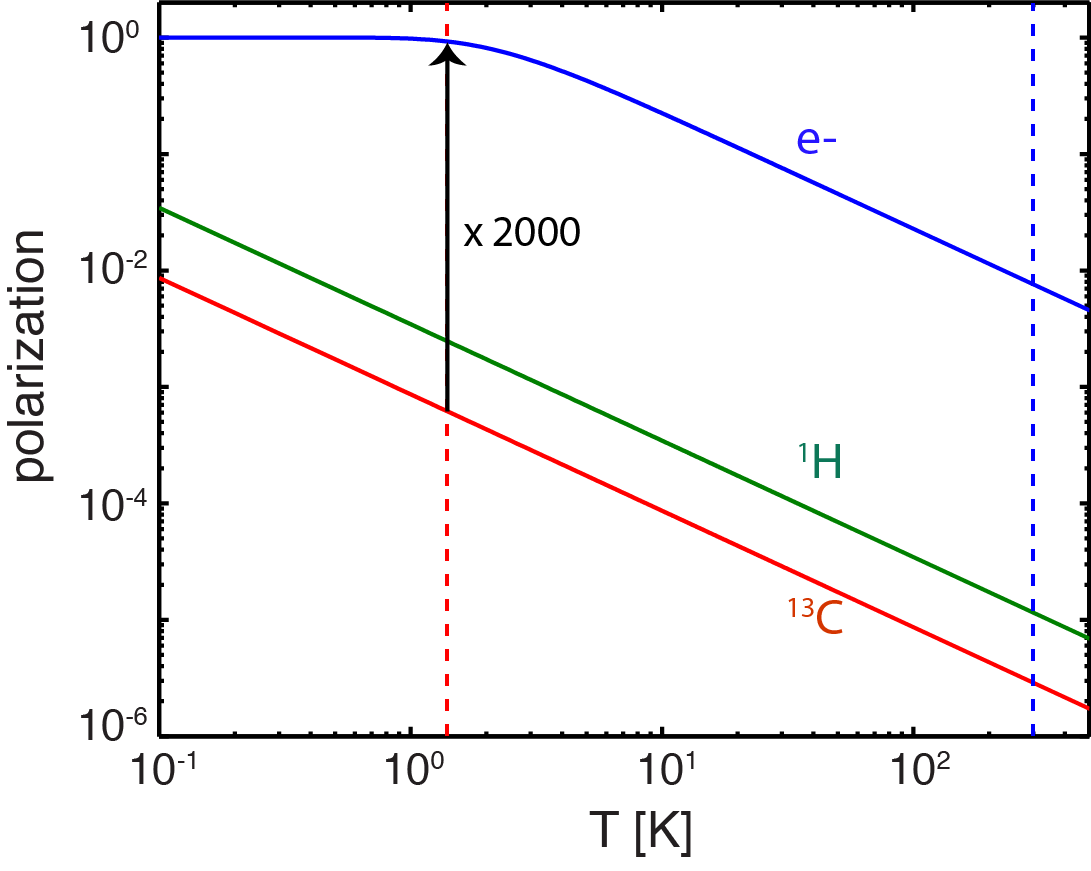Dissolution DNP

Improving the inherently low sensitivity of NMR has been an important topic of research since the very early days. Dynamic nuclear polarization (DNP) is a hyperpolarization method which achieves nuclear polarizations significantly larger than the thermal-equilibrium polarization by transferring to nuclei the polarization of electrons. Due to the requirement of working at low temperatures, DNP of solid substances had limited applicability to high-resolution NMR and magnetic resonance imaging (MRI) until 2003, when DNP techniques based on fast dissolution of highly-polarized small molecules have been developed (dissolution DNP). The highly-polarized small molecules dissolved in solutions are then used as markers for in-vivo MRI, magnetic resonance spectroscopy (MRS) as well as for high-resolution NMR spectroscopy.
Current research topics
Further developments are necessary to widen the scope of dissolution DNP. Presently, dissolution DNP with direct polarization of 13C labeled metabolites (e.g. [1-13C]-pyruvate) is limited by the slow polarization process (> 1 hour), which precedes a single in-vivo MRI experiment and which is due to the typically slow build up of the 13C polarization. This feature is bothersome in general since it slows down considerably the experimental work but it is even critical in certain in-vivo studies where several experiments must be repeated within relative short time, e.g. to observe response to drugs. We could show that the combination of DNP with cross polarization (DNP-CP) accelerates the polarization process for dilute 13C nuclei, thus allowing shorter repetition times. We are further investigating possibilities to optimise the dissolution DNP-CP technique with the aim of applying it in routine dissolution DNP experiments.
Collaboration with Sebastian Kozerke (ETH Zurich) and Markus Rudin (ETH Zurich).